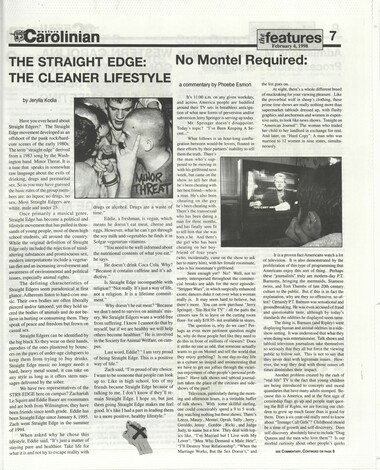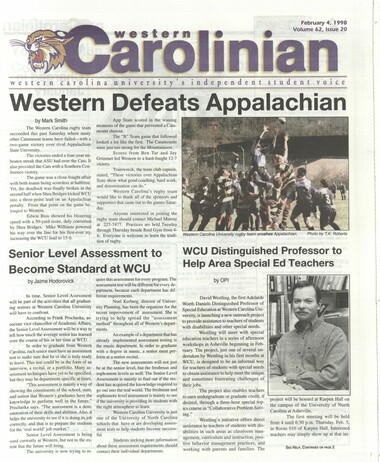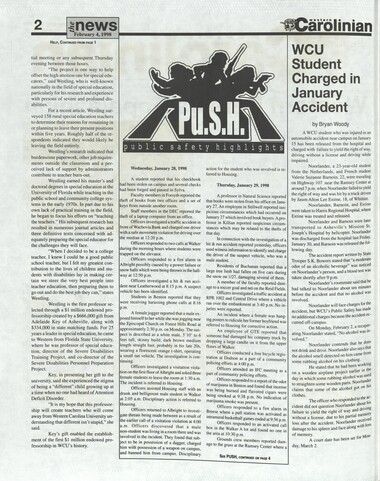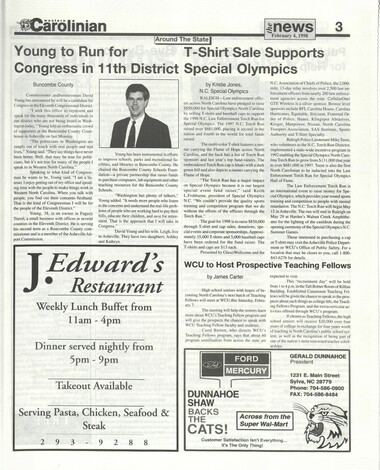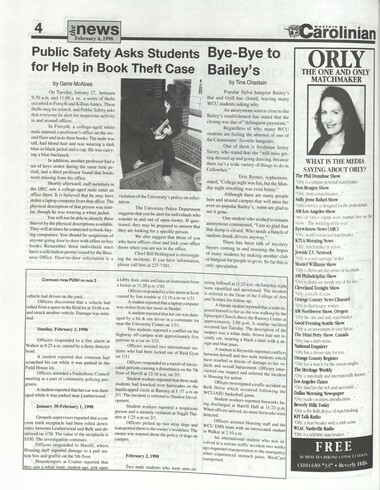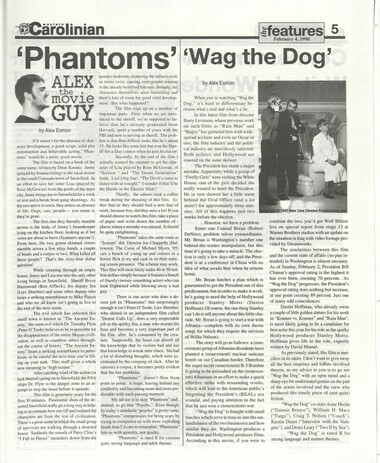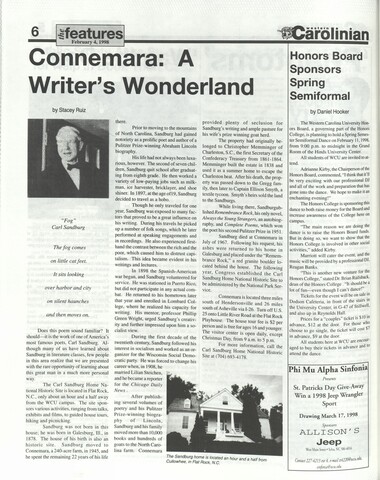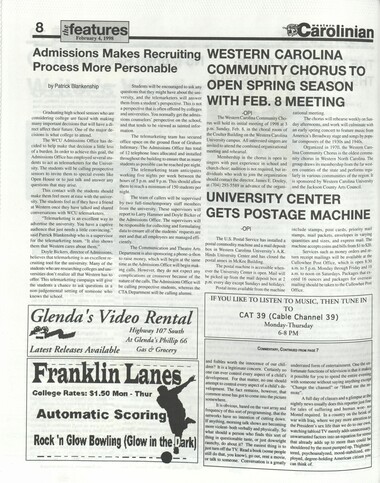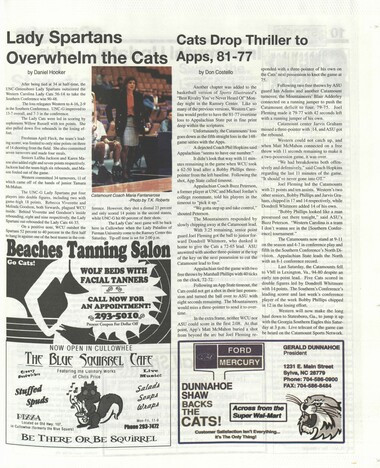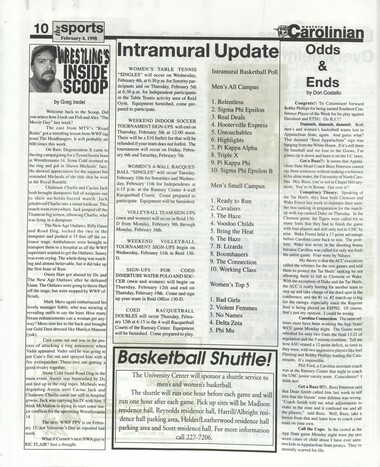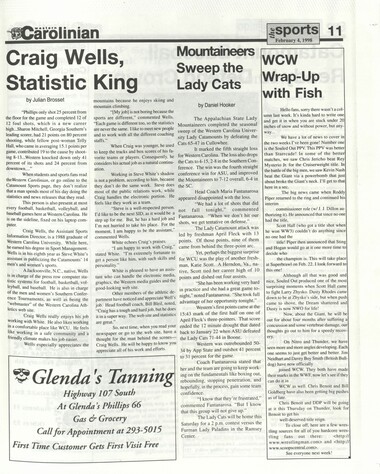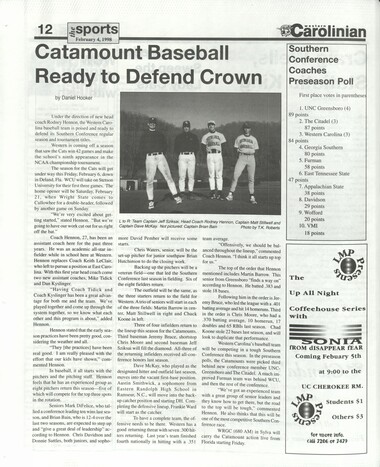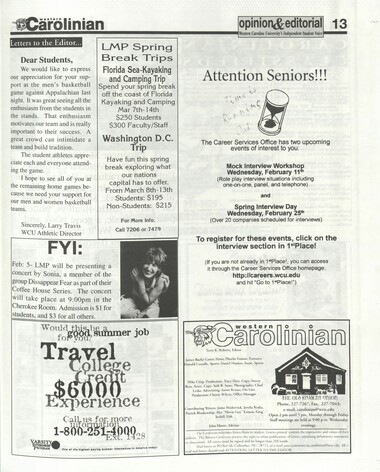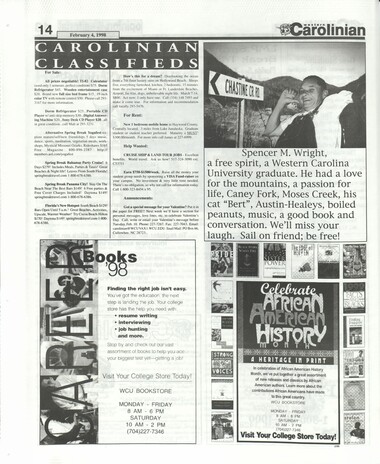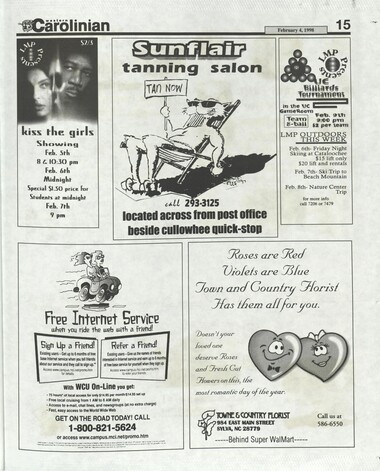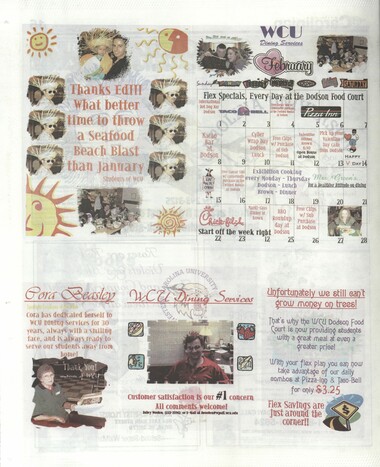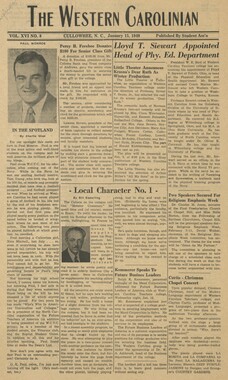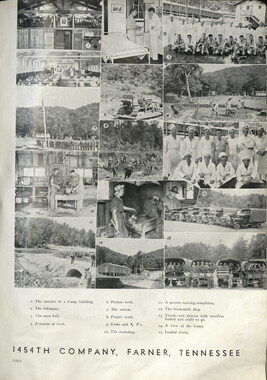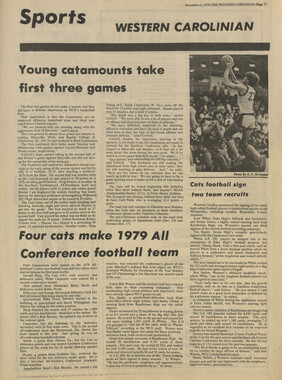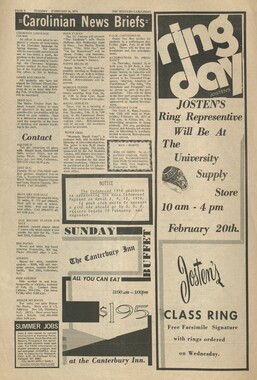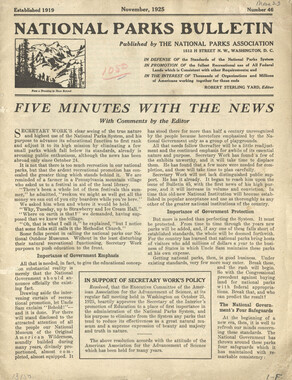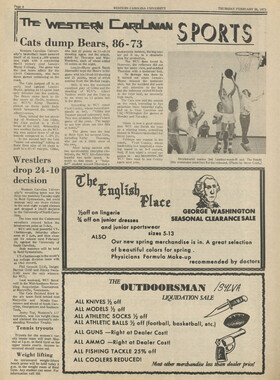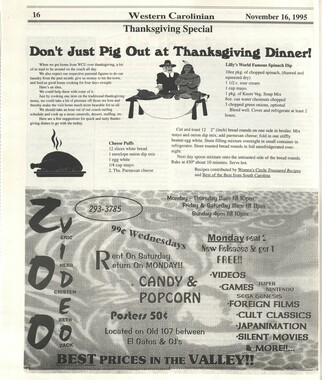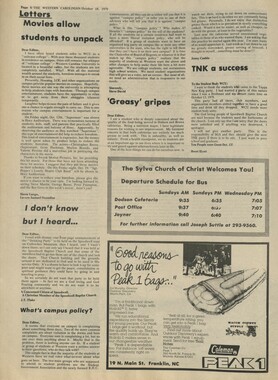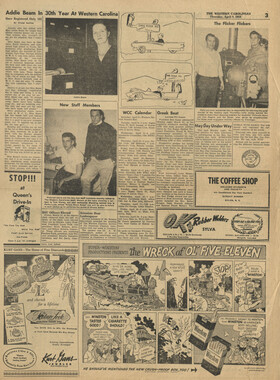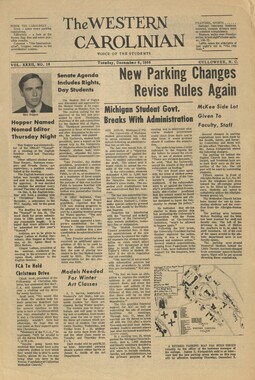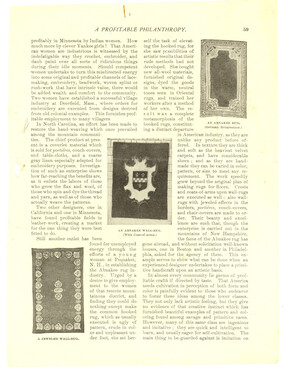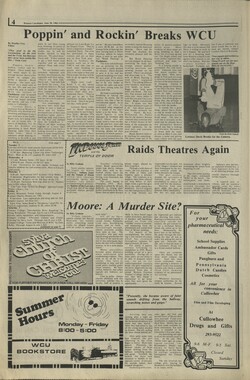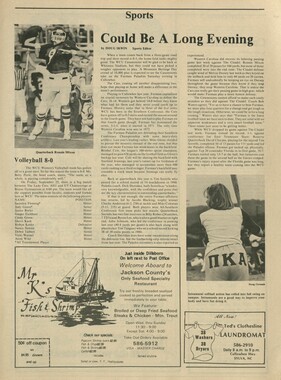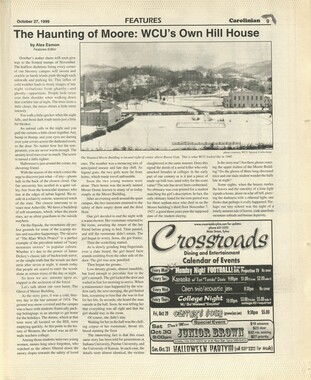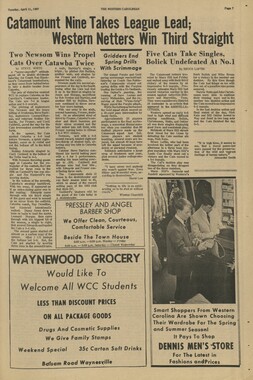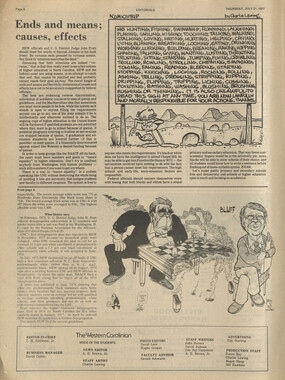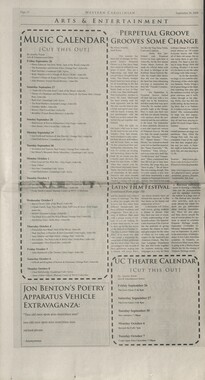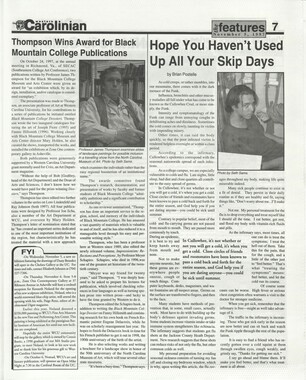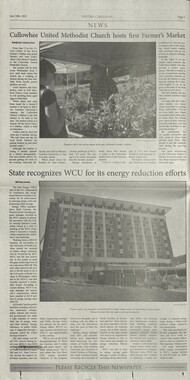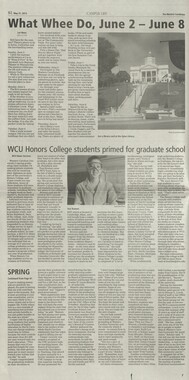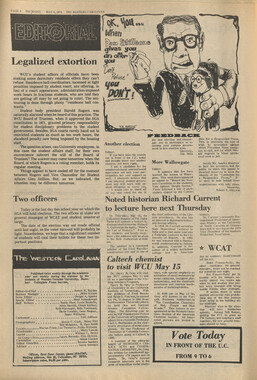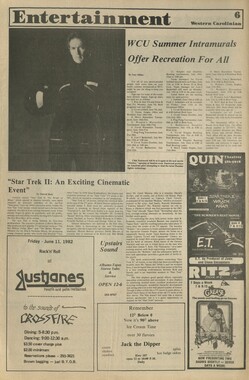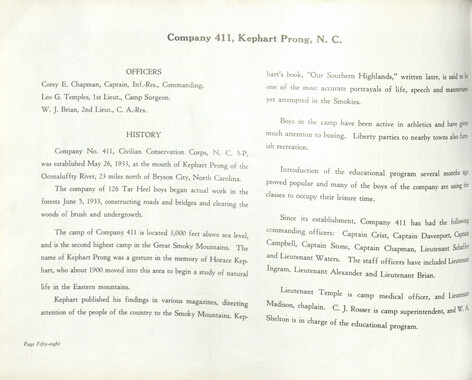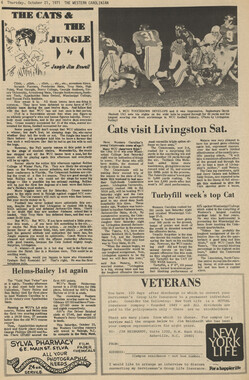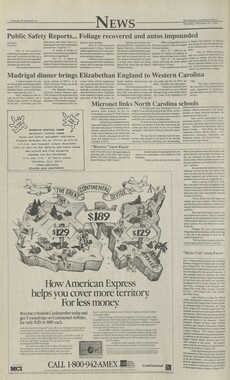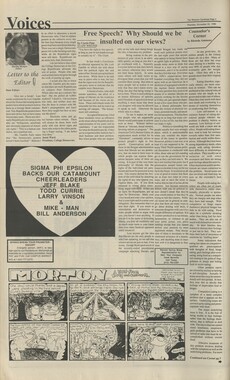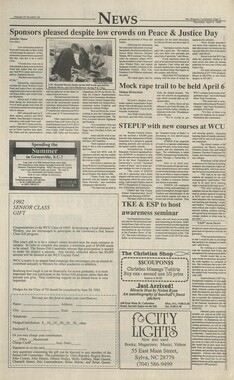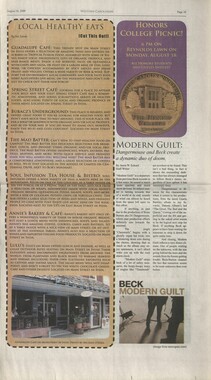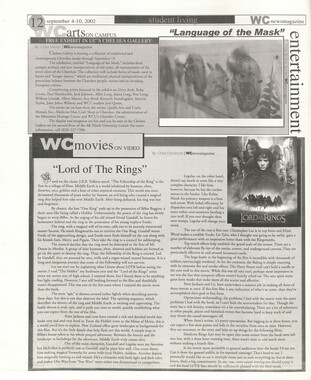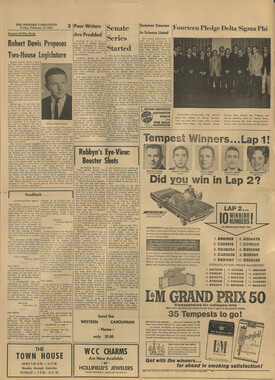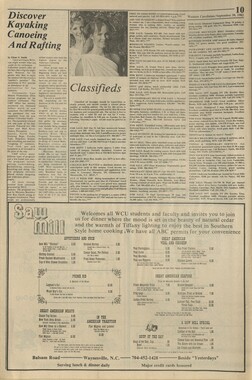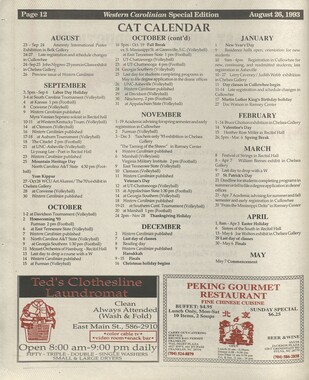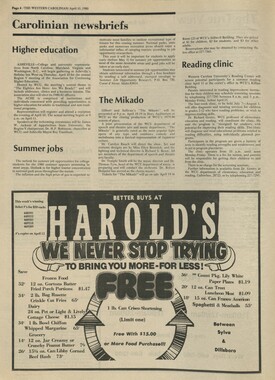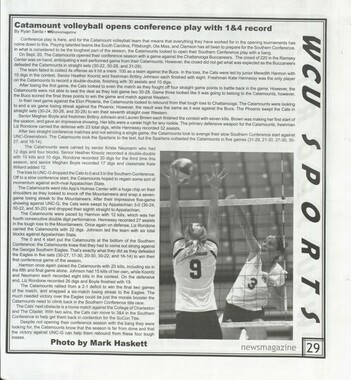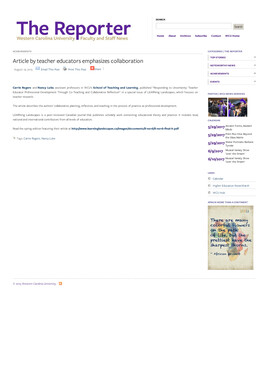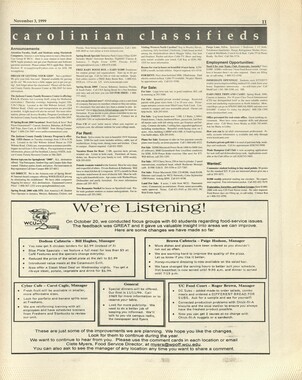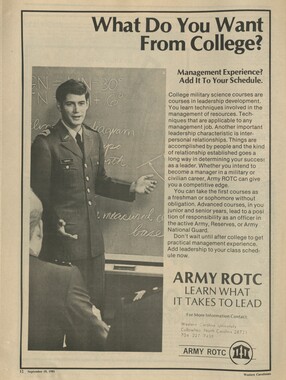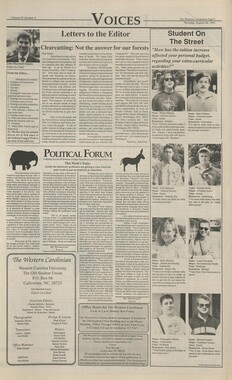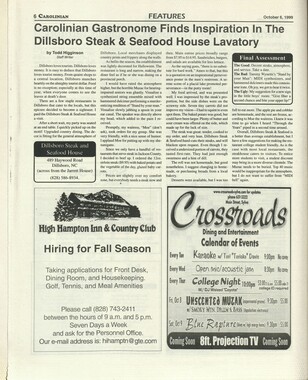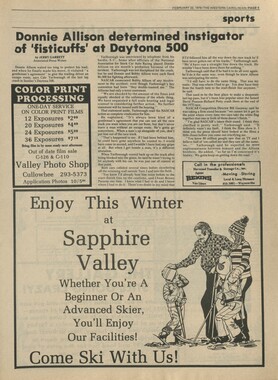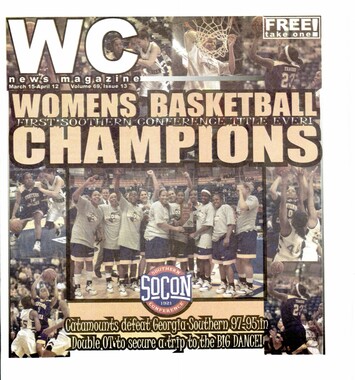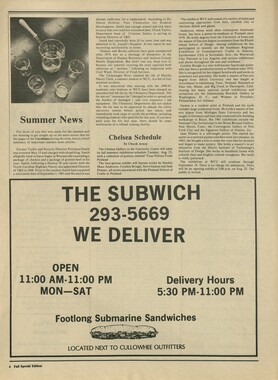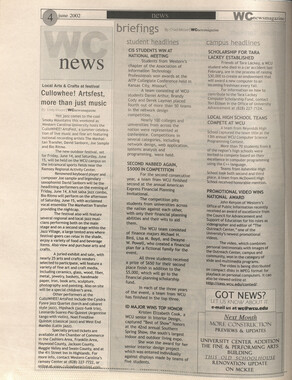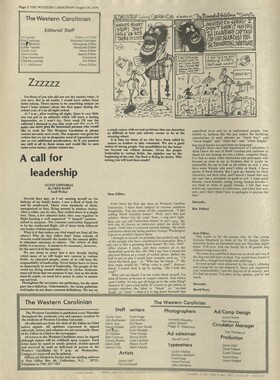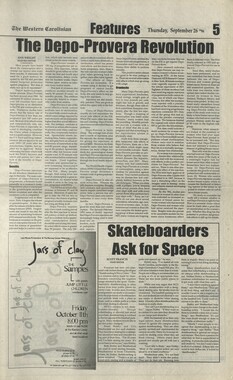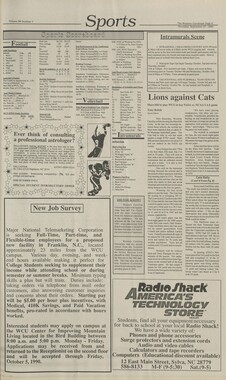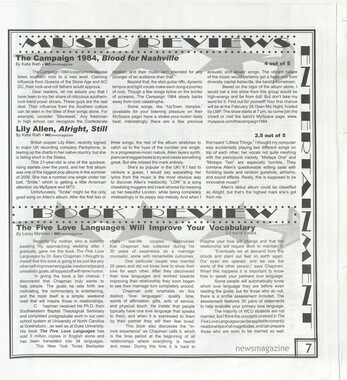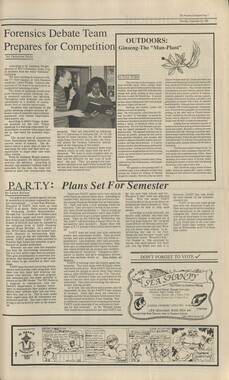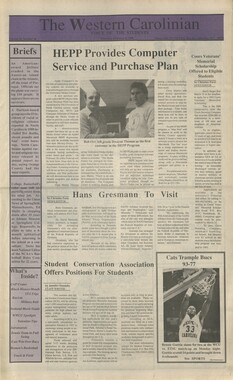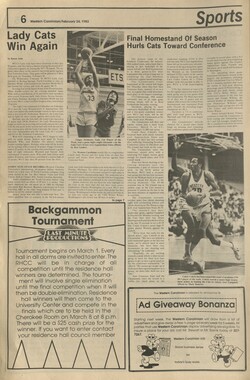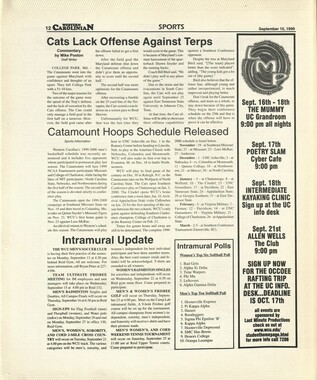Western Carolina University (21)
View all
- Canton Champion Fibre Company (2308)
- Cherokee Traditions (291)
- Civil War in Southern Appalachia (165)
- Craft Revival (1942)
- George Masa Collection (137)
- Great Smoky Mountains - A Park for America (3080)
- Highlights from Western Carolina University (422)
- Horace Kephart (973)
- Journeys Through Jackson (159)
- LGBTQIA+ Archive of Jackson County (89)
- Oral Histories of Western North Carolina (318)
- Picturing Appalachia (6617)
- Stories of Mountain Folk (413)
- Travel Western North Carolina (153)
- Western Carolina University Fine Art Museum Vitreograph Collection (129)
- Western Carolina University Herbarium (92)
- Western Carolina University: Making Memories (738)
- Western Carolina University Publications (2491)
- Western Carolina University Restricted Electronic Theses and Dissertations (146)
- Western North Carolina Regional Maps (71)
- World War II in Southern Appalachia (131)
University of North Carolina Asheville (6)
View all
- Allanstand Cottage Industries (62)
- Appalachian National Park Association (53)
- Bennett, Kelly, 1890-1974 (1463)
- Berry, Walter (76)
- Brasstown Carvers (40)
- Carver, George Washington, 1864?-1943 (26)
- Cathey, Joseph, 1803-1874 (1)
- Champion Fibre Company (233)
- Champion Paper and Fibre Company (297)
- Cherokee Indian Fair Association (16)
- Cherokee Language Program (22)
- Crowe, Amanda (40)
- Edmonston, Thomas Benton, 1842-1907 (7)
- Ensley, A. L. (Abraham Lincoln), 1865-1948 (275)
- Fromer, Irving Rhodes, 1913-1994 (70)
- George Butz (BFS 1907) (46)
- Goodrich, Frances Louisa (120)
- Grant, George Alexander, 1891-1964 (96)
- Heard, Marian Gladys (60)
- Kephart, Calvin, 1883-1969 (15)
- Kephart, Horace, 1862-1931 (313)
- Kephart, Laura, 1862-1954 (67)
- Laney, Gideon Thomas, 1889-1976 (439)
- Masa, George, 1881-1933 (61)
- McElhinney, William Julian, 1896-1953 (44)
- Niggli, Josephina, 1910-1983 (10)
- North Carolina Park Commission (105)
- Osborne, Kezia Stradley (9)
- Owens, Samuel Robert, 1918-1995 (11)
- Penland Weavers and Potters (36)
- Roberts, Vivienne (15)
- Roth, Albert, 1890-1974 (142)
- Schenck, Carl Alwin, 1868-1955 (1)
- Sherrill's Photography Studio (2565)
- Southern Highland Handicraft Guild (127)
- Southern Highlanders, Inc. (71)
- Stalcup, Jesse Bryson (46)
- Stearns, I. K. (213)
- Thompson, James Edward, 1880-1976 (226)
- United States. Indian Arts and Crafts Board (130)
- USFS (683)
- Vance, Zebulon Baird, 1830-1894 (1)
- Weaver, Zebulon, 1872-1948 (58)
- Western Carolina College (230)
- Western Carolina Teachers College (282)
- Western Carolina University (2008)
- Western Carolina University. Mountain Heritage Center (18)
- Whitman, Walt, 1819-1892 (10)
- Wilburn, Hiram Coleman, 1880-1967 (73)
- Williams, Isadora (3)
- Cain, Doreyl Ammons (0)
- Crittenden, Lorraine (0)
- Rhodes, Judy (0)
- Smith, Edward Clark (0)
- Appalachian Region, Southern (3032)
- Asheville (N.C.) (1945)
- Avery County (N.C.) (26)
- Blount County (Tenn.) (195)
- Buncombe County (N.C.) (1680)
- Cherokee County (N.C.) (283)
- Clay County (N.C.) (556)
- Graham County (N.C.) (238)
- Great Smoky Mountains National Park (N.C. and Tenn.) (525)
- Haywood County (N.C.) (3573)
- Henderson County (N.C.) (70)
- Jackson County (N.C.) (4925)
- Knox County (Tenn.) (35)
- Knoxville (Tenn.) (13)
- Lake Santeetlah (N.C.) (10)
- Macon County (N.C.) (421)
- Madison County (N.C.) (216)
- McDowell County (N.C.) (39)
- Mitchell County (N.C.) (135)
- Polk County (N.C.) (35)
- Qualla Boundary (982)
- Rutherford County (N.C.) (78)
- Swain County (N.C.) (2185)
- Transylvania County (N.C.) (270)
- Watauga County (N.C.) (12)
- Waynesville (N.C.) (86)
- Yancey County (N.C.) (72)
- Aerial Photographs (3)
- Aerial Views (60)
- Albums (books) (4)
- Articles (1)
- Artifacts (object Genre) (228)
- Bibliographies (1)
- Biography (general Genre) (2)
- Cards (information Artifacts) (38)
- Clippings (information Artifacts) (192)
- Copybooks (instructional Materials) (3)
- Crafts (art Genres) (622)
- Depictions (visual Works) (21)
- Design Drawings (1)
- Digital Moving Image Formats (2)
- Drawings (visual Works) (185)
- Envelopes (101)
- Exhibitions (events) (1)
- Facsimiles (reproductions) (1)
- Fiction (general Genre) (4)
- Financial Records (12)
- Fliers (printed Matter) (67)
- Glass Plate Negatives (381)
- Guidebooks (2)
- Internegatives (10)
- Interviews (823)
- Land Surveys (102)
- Letters (correspondence) (1045)
- Manuscripts (documents) (618)
- Maps (documents) (177)
- Memorandums (25)
- Minutes (administrative Records) (59)
- Negatives (photographs) (6090)
- Newsletters (1290)
- Newspapers (2)
- Notebooks (8)
- Occupation Currency (1)
- Paintings (visual Works) (1)
- Pen And Ink Drawings (1)
- Periodicals (194)
- Personal Narratives (10)
- Photographs (12977)
- Plans (maps) (1)
- Poetry (6)
- Portraits (4568)
- Postcards (329)
- Programs (documents) (181)
- Publications (documents) (2444)
- Questionnaires (65)
- Relief Prints (26)
- Sayings (literary Genre) (1)
- Scrapbooks (282)
- Sheet Music (2)
- Slides (photographs) (402)
- Songs (musical Compositions) (2)
- Sound Recordings (802)
- Specimens (92)
- Speeches (documents) (18)
- Tintypes (photographs) (8)
- Transcripts (329)
- Text Messages (0)
- A.L. Ensley Collection (275)
- Appalachian Industrial School Records (7)
- Appalachian National Park Association Records (336)
- Axley-Meroney Collection (2)
- Bayard Wootten Photograph Collection (20)
- Bethel Rural Community Organization Collection (7)
- Blumer Collection (5)
- C.W. Slagle Collection (20)
- Canton Area Historical Museum (2110)
- Carlos C. Campbell Collection (462)
- Cataloochee History Project (64)
- Cherokee Studies Collection (4)
- Daisy Dame Photograph Album (5)
- Daniel Boone VI Collection (1)
- Doris Ulmann Photograph Collection (112)
- Elizabeth H. Lasley Collection (1)
- Elizabeth Woolworth Szold Fleharty Collection (4)
- Frank Fry Collection (95)
- George Masa Collection (173)
- Gideon Laney Collection (452)
- Hazel Scarborough Collection (2)
- Hiram C. Wilburn Papers (28)
- Historic Photographs Collection (236)
- Horace Kephart Collection (861)
- Humbard Collection (33)
- Hunter and Weaver Families Collection (1)
- I. D. Blumenthal Collection (4)
- Isadora Williams Collection (4)
- Jesse Bryson Stalcup Collection (47)
- Jim Thompson Collection (224)
- John B. Battle Collection (7)
- John C. Campbell Folk School Records (80)
- John Parris Collection (6)
- Judaculla Rock project (2)
- Kelly Bennett Collection (1482)
- Love Family Papers (11)
- Major Wiley Parris Civil War Letters (3)
- Map Collection (12)
- McFee-Misemer Civil War Letters (34)
- Mountain Heritage Center Collection (4)
- Norburn - Robertson - Thomson Families Collection (44)
- Pauline Hood Collection (7)
- Pre-Guild Collection (2)
- Qualla Arts and Crafts Mutual Collection (12)
- R.A. Romanes Collection (681)
- Rosser H. Taylor Collection (1)
- Samuel Robert Owens Collection (94)
- Sara Madison Collection (144)
- Sherrill Studio Photo Collection (2558)
- Smoky Mountains Hiking Club Collection (616)
- Stories of Mountain Folk - Radio Programs (374)
- The Reporter, Western Carolina University (510)
- Venoy and Elizabeth Reed Collection (16)
- WCU Gender and Sexuality Oral History Project (36)
- WCU Mountain Heritage Center Oral Histories (25)
- WCU Oral History Collection - Mountain People, Mountain Lives (71)
- WCU Students Newspapers Collection (1923)
- Western North Carolina Tomorrow Black Oral History Project (69)
- William Williams Stringfield Collection (2)
- Zebulon Weaver Collection (109)
- African Americans (390)
- Appalachian Trail (35)
- Artisans (521)
- Cherokee art (84)
- Cherokee artists -- North Carolina (10)
- Cherokee language (21)
- Cherokee pottery (101)
- Cherokee women (208)
- Church buildings (190)
- Civilian Conservation Corps (U.S.) (111)
- College student newspapers and periodicals (2012)
- Dams (108)
- Dance (1023)
- Education (222)
- Floods (63)
- Folk music (1015)
- Forced removal, 1813-1903 (2)
- Forest conservation (220)
- Forests and forestry (1198)
- Gender nonconformity (4)
- Great Smoky Mountains National Park (N.C. and Tenn.) (181)
- Hunting (47)
- Landscape photography (25)
- Logging (122)
- Maps (83)
- Mines and mineral resources (9)
- North Carolina -- Maps (18)
- Paper industry (38)
- Postcards (255)
- Pottery (135)
- Railroad trains (72)
- Rural electrification -- North Carolina, Western (3)
- School integration -- Southern States (2)
- Segregation -- North Carolina, Western (5)
- Slavery (5)
- Sports (452)
- Storytelling (243)
- Waterfalls -- Great Smoky Mountains (N.C. and Tenn.) (66)
- Weaving -- Appalachian Region, Southern (280)
- Wood-carving -- Appalachian Region, Southern (328)
- World War, 1939-1945 (173)
Western Carolinian Volume 62 (63) Number 20
Item
Item’s are ‘child’ level descriptions to ‘parent’ objects, (e.g. one page of a whole book).
-
-
^Carolinian THE STRAIGHT EDGE: No Montel Required: THE CLEANER LIFESTYLE by Jerylia Kodia Have you ever heard about Straight Edgers? The Straight Edge movement developed as an offshoot of the punk rock/hardcore scenes of the early 1980s. The term "straight edge" derived from a 1983 song by the Washington band Minor Threat. It is a tune that speaks in somewhat raw language about the evils of drinking, drugs and premarital sex. So as you may have guessed the basic rules of the group members are: no liquor, no drugs, no sex. Most Straight Edgers are white, male and under 25. Once primarily a musical genre, Straight Edge has become a political and lifestyle movement that has pulled in thousands of young people, most of them high school students, all around the country. While the original definition of Straight Edge only included the rejection of mind- altering substances and promiscuous sex, modern interpretations include a vegetarian diet and an increasing involvement and awareness of environmental and political issues, especially animal rights. The defining characteristics of Straight Edgers seem paradoxical at first glance. Adherents listen to hard-core music. Their own bodies are often liberally pierced and/or tattooed; yet they hold sacred the bodies of animals and do not believe in hurting or consuming them. They speak of peace and freedom but frown on casual sex. Straight Edgers can be identified by the big black Xs they wear on their hands, parodies of the ones plastered by bouncers on the paws of under-age clubgoers to keep them from trying to buy drinks. Straight Edge music no longer needs a hard, heavy metal sound; it can take on any style as long as it offers stern messages delivered by the sober. We have two representatives of the STR8-EDGE here on campus? Zachariah Le Squire and Eddie Bauer are roommates and are both from Wilmington; they have been friends since tenth grade. Eddie has been Straight Edge since January 8,1995. Zach went Straight Edge in the summer of 1994. When asked why he chose this lifestyle, Eddie said, "It's just a matter of staying pure and healthier. Take life for what it is and not try to escape reality with drugs or alcohol. Drugs are a waste of time." Eddie, a freshman, is vegan, which means he doesn't eat meat, cheese and eggs. However, what he can't get through the soy milk and vegetables he finds it in Solgar vegetarian vitamins. "You need to be well-informed about the nutritional contents of what you eat," he says. He doesn't drink Coca Cola. Why? "Because it contains caffeine and it's addictive." Is Straight Edge incompatible with religion? "Not really. It's just a way of life, not a religion. It is a lifetime commitment." Why doesn't he eat meat? "Because we don't need to survive on animals' misery. We Straight Edgers want a world free from suffering. I know I cannot do that by myself, but if we are healthy we will help others become healthier." He is involved in the Society for Animal Welfare, on campus. Last word, Eddie? " I am very proud of being Straight Edge. This is a positive way of life." Zach said, "I'm proud of my choice. I want to be someone that people can look up to. Like in high school, lots of my friends became Straight Edge because of talking to me. I don't know if they'll remain Straight Edge. I hope so, but just them going Straight Edge makes me feel good. It's like I had a part in leading them to a more positive, healthy lifestyle." a commentary by Phoebe Esmon It's 11:00 a.m. on any given weekday, and across America people are huddled around their TV sets in breathless anticipation of what new forms of perversion and/or subversion Jerry Springer is serving up today. Mr. Springer doesn't disappoint. Today's topic? "I've Been Keeping A Secret..." What follows is an hour-long conflagration between would-be lovers, flouted in their efforts by their partners' inability to tell them the truth. There's the man who's supposed to be moving in with his girlfriend next week, but came on the show to tell her that he's been cheating with her best friend—who is a man. He's also been cheating on the guy he's been cheating with. There's the transsexual who has been dating a man for three months, and has finally seen fit to tell him that she was born a he. And there's the girl who has been cheating on her boyfriend of four years (who, incidentally, came on the show to ask her to marry him), with her female roommate, who is his roommate's girlfriend. Seen enough yet? No? Well, not to worry, interspersed throughout the commercial breaks are adds for the next episode- "Stripper Wars", in which surgically enhanced exotic dancers duke it out over what a woman really is. It may seem hard to believe, but there's more. You can now purchase "Jerry Springer - Too Hot for TV" - all the parts the censors saw fit to leave on the cutting room floor- for only $19.95- not available in stores. The question is, why do we care? Perhaps an even more pertinent question might be, why do these people feel like they need to do this in front of millions of viewers? Does it strike no one as odd, that someone actually wants to go on Montel and tell the world that they enjoy gerbiling? Is our day-to-day life as a culture so insipid and uninteresting that we have to get our jollies through the vicarious enjoyment of other people's personal problems? Have talk shows and tabloid journalism taken the place of the circuses and sideshows of the past? Television, particularly during the morning and afternoon hours, is a veritable buffet of talk shows. With some skillful surfing, one could conceivably spend a 9 to 5 workday watching nothing but these shows. There's Leeza, Maury , Montel, Oprah, Sally , Jerry , Geraldo, Jenny , Gordon , Ricki , and Judge Judy, to name but a few. They deal with topics like, "I'm Married but I Live with My Lover", "Men Who Demand a Male Heir", "I'll Destroy Your Relationship", "When the Marriage Works, But the Sex Doesn't," and the list goes on. At night, there's a whole different breed of muckraking for your viewing pleasure. Like the proverbial wolf in sheep's clothing, these prime time shows are really nothing more than supermarket tabloids dressed up, with flashy graphics and anchormen and women in expensive suits, to look like news shows. Tonight on "American Journal": The woman who traded her child to her landlord in exchange for rent. And later, on "Hard Copy": A man who was married to 12 women in nine states, simultaneously. It is a proven fact Americans watch a lot of television. It is also demonstrated by the proliferation of this type of programming that Americans enjoy this sort of thing. Perhaps these "journalists" truly are modern-day P.T. Barnums, bringing the mermaids, Siamese twins, and Tom Thumbs of late 20th century culture to the public. But if this is in fact the explanation, why are they so offensive, so often? Certainly P.T. Barnum was sensational and groundbreaking. He was even accused of fraud and questionable taste, although by today's standards the oddities he displayed seem tame. The thing is, Barnum (and Ripley) were displaying human and animal oddities in a sideshow setting. It was understood that what they were doing was entertainment. Talk shows and tabloid television journalism take themselves so seriously that they all but force the viewing public to follow suit. This is not to say that they never deal with legitimate issues. However, the way they deal with those issues oft times diminishes their impact. Another problem created by the rash of "real life" TV is the fact that young children are being introduced to concepts and moral quandaries that have many adults stumped. Because this is America, and at the first sign of censorship flags go up and people start quoting the Bill of Rights, we are forcing our children to grow up much faster than is good for them. Does a six-year-old really need to know about "Teenage Call Girls"? Childhood should be a time of growth and self-discovery. Does self-discovery absolutely have to include "Drag Queens and the men who love them"? Is our morbid curiosity about other people's quirks see Commentary, Continued on page 8
Object
Object’s are ‘parent’ level descriptions to ‘children’ items, (e.g. a book with pages).
-
The Western Carolinian is Western Carolina University's student-run newspaper. The paper was published as the Cullowhee Yodel from 1924 to 1931 before changing its name to The Western Carolinian in 1933.
-
